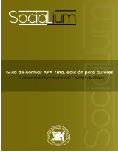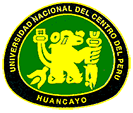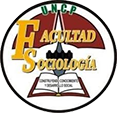Application of Vigotsky's theory to the problem of learning in mathematics
DOI:
https://doi.org/10.26490/uncp.sl.2018.2.1.532Keywords:
real development zone, zone of proximal development, learning in mathematicsAbstract
The article deals with the application of Vygotsky's sociocultural theory of learning in solving the problem of learning difficulties in mathematics. First, the educational problem is identified and described, then, with Vygotsky's theory of the transition from the zone of real development to the zone of proximal development, it is propounded how the teacher can achieve this transition in the addition operation learning in children. It is necessary for the teacher to use instruments for the diagnosis of the zone of real development and for planning the zones of proximal development in the mathematics learning. The teacher should not pass to the next zone of proximal development if he has not achieved that the student converts into a zone of real development the previous zone of proximal development.
References
Galperin, P. Y. (1979). Introducción a la psicología. Un enfoque dialéctico. Madrid: Pablo del Río.
González, V., Castellanos, D., Córdova, M. D., Rebollar, M., Martínez, M., Fernández, A. M., Martínez, N., y Perez, D. (2000). Psicología para educadores. La Habana: Pueblo y Educación.
Riviére, A. (1996). La teoría psicológica de Vygotski. Lima: Salmon.
Vygotsky, L. S. (1964). Pensamiento y leguaje. Bs.As. Lautaro.
Vygotski, L.S. (1979). El desarrollo de los procesos psicológicos superiores. México, D.F: Grijalbo.
Wuigotskij, L. S. (1987). Historia del desarrollo de las funciones psíquicas superiores. La Habana: Científico Técnica.
Zaldívar, M. E. y Bispo, Y. (2007). Algunas consideraciones sobre el concepto de zona de desarrollo potencial. Revista Iberoamericana de Educación, 43(2), 1-4.








.jpg)















